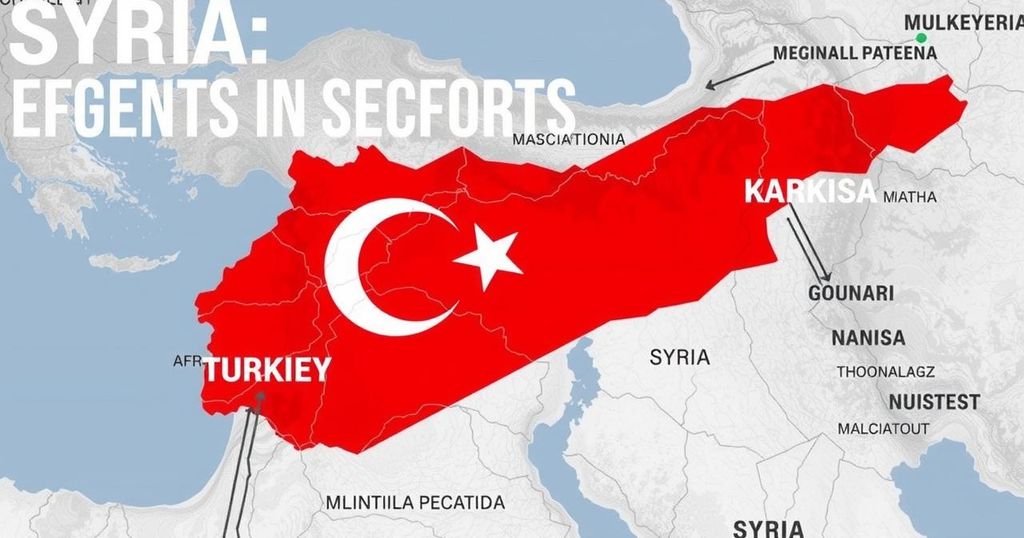Turkey’s Ambiguous Position in Post-Assad Syria
This article examines the flawed narrative suggesting that Turkey has emerged victorious in Syria after Assad’s fall. Although Turkey holds a strategically advantageous position through alliances, it faces significant challenges in asserting power amid shifting regional dynamics and unresolved Kurdish issues. The haste to claim victory may lead to miscalculations regarding Turkey’s true influence in post-Assad Syria.
The narrative that Turkey has emerged victorious in Syria following Bashar al-Assad’s fall is misleading. While Turkey does maintain a strategically advantageous position, it has yet to reap any actual victories in the region. Turkish influence has been bolstered by alliances with groups like Hayat Tahrir al-Sham (HTS) and the Syrian National Army, which played significant roles in dismantling Assad’s regime. However, President Recep Tayyip Erdogan faces substantial challenges that exist on multiple fronts.
The Turkish government initially aimed to utilize its military interventions to facilitate Syria-Turkey normalization rather than seeking Assad’s outright defeat. Turkey’s influence seems to be waning rapidly, as HTS and its leaders now possess more options for collaboration than they did previously. The recent influx of foreign diplomats to HTS leadership demonstrates that Turkey is not the sole external power anymore. Furthermore, Turkey’s claims of cultural ties in the region are echoed by nearby Arab nations, offering them a significant advantage in forming alliances with the newly empowered Syrian leadership.
Moreover, the complex dynamics surrounding Kurdish nationalism complicate Turkey’s strategic plans. The People’s Protection Units (YPG), essential to U.S. counter-Islamic State efforts, represent a critical hurdle for Turkey, which sees them as indistinguishable from the PKK terrorist group. While Turkey perceives this moment as an opportunity to eliminate Kurdish forces, the likelihood of success is questionable. In fact, HTS’s hesitance to join in Turkish efforts against the YPG further underscores Ankara’s waning control.
The prevalent characterization of Turkey as the victor in Syria raises expectations that do not align with the realities on the ground. Historical patterns indicate that Turkey has repeatedly miscalculated its influence and strategies throughout the Syrian conflict. While it remains a key player, it is premature to declare Turkey the definitive victor in this evolving landscape. A nuanced awareness of the multifaceted regional power dynamics is essential to understand the implications of these developments.
The article discusses the ongoing geopolitical situation in Syria, particularly after the change in power dynamics following the fall of Bashar al-Assad. It critiques the emerging narrative that Turkey has secured a victory, highlighting the complex relationships and challenges Turkey faces as it attempts to establish its influence in the new context. The role of various factions, including HTS and the Syrian National Army, as well as the implications of burgeoning relationships among other regional powers, are analyzed to provide a comprehensive understanding of the current situation in Syria.
In summary, while Turkey’s involvement in the Syrian conflict has positioned it as a major player, declaring it the unequivocal winner is premature. The shifting dynamics among regional powers, along with the challenges posed by Kurdish groups and the evolving role of HTS, reveal limitations in Turkey’s influence. A closer examination of these complexities indicates that Turkey must navigate a challenging landscape to achieve its strategic objectives in Syria, underscoring the need for realism in understanding its regional ambitions.
Original Source: foreignpolicy.com




Post Comment